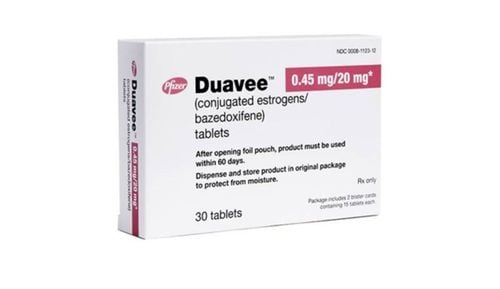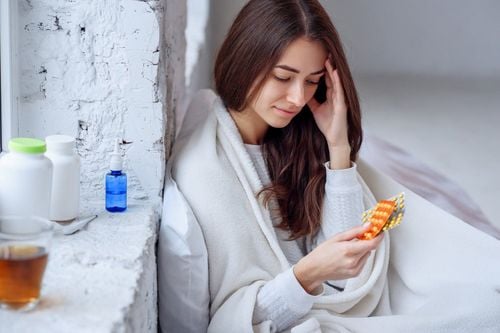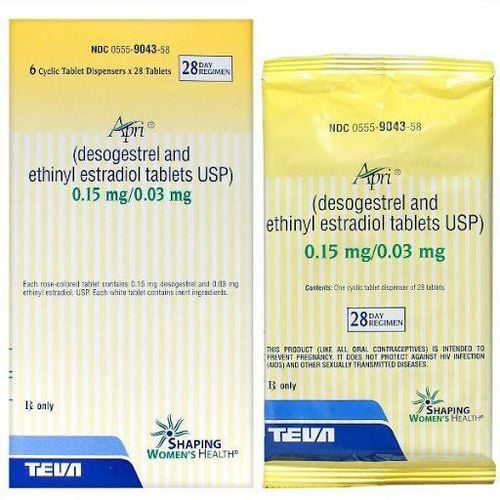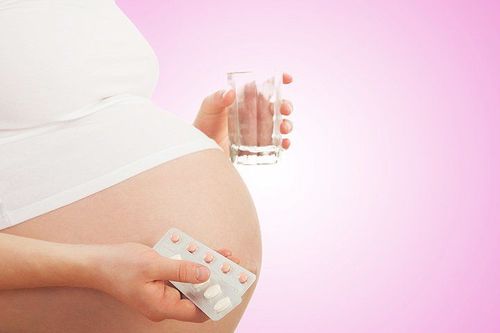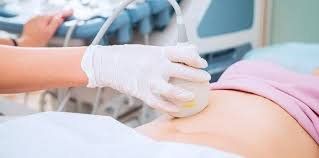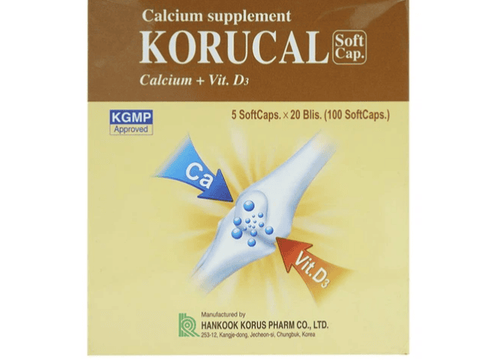This is an automatically translated article.
The article was consulted with Specialist Doctor II Pham Thi Tuyet Mai - Obstetrician and Gynecologist - Department of Obstetrics and Gynecology - Vinmec Hai Phong International General Hospital.Estrogen is a hormone secreted by the ovaries, it is likened to a lifeline that helps women maintain their figure and smooth skin. At the same time, it is also a type of hormone that helps women maintain sexual desire... Therefore, after the spring period, the decline in estrogen is also one of the causes of female body problems. .
1. The role of estrogen
Estrogen is a female sex hormone that plays a key role in sex development and female sex organs such as vagina, fallopian tubes, endometrium... create secondary female characteristics such as voice voice, small shoulders, enlarged breasts... Growth hormone helps to perfect the mammary glands, ovaries, and sex organs during puberty. Estrogen makes the lining of the uterus grow and works with progesterone to form the menstrual cycle, helping to regulate menstruation and maintain sexual desire. When estrogen levels are sufficient, achieving orgasm is very easy and makes it easier for a woman to conceive. Support the development of follicles, when the egg is ovulated, estrogen will increase the peristalsis of the fallopian tube to easily receive the egg and put the follicle into the uterus smoothly. Estrogen creates a favorable environment for sperm to easily enter the uterus, survive and move, so it facilitates fertilization to take place. Estrogen determines and governs the development of female sexual characteristics such as pubic hair growth, breast development, milk duct proliferation and fatty tissue development, making breasts large and firm. Make the uterus, vagina and external genitals grow. The vaginal mucosa is developed, contains a lot of glycogen, the vaginal environment is always in an acidic state, so it is resistant to infections. Protects the heart and prevents osteoporosis. The decline in the hormone estrogen during menopause greatly affects a woman's sexual behavior such as decreased sensation, decreased sex drive. Not only affects physiological and psychological, menopause is also very susceptible to other diseases such as diabetes, heart disease, arthritis, breast and uterine diseases... increase anxiety and stress. Accompanied by the deterioration of the skin, the skin gradually loses its smoothness, gradually appears crow's feet...
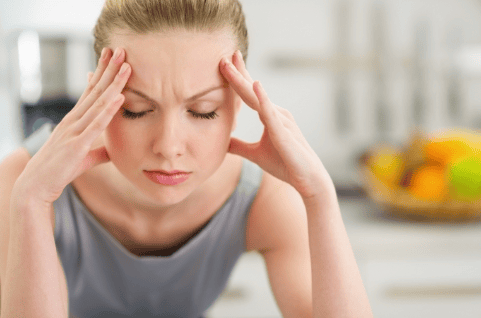
2. Signs of declining estrogen
Decrease in estrogen usually occurs when women prepare water into menopause. However, today, due to the impact of the environment and life pressure, many women over the age of 30 have faced this condition. Here are the signs of estrogen decline:
Irregular periods: Estrogen is one of the main hormones that control a woman's menstrual cycle. Low estrogen can lead to irregular menstrual cycles, short and long periods, amenorrhea and early menopause. Infertility: Low estrogen levels can prevent ovulation and make pregnancy difficult and can lead to infertility. Weak bones: You may also find your bones break or break more easily. This may be due to decreased bone density. Estrogen works in conjunction with calcium, vitamin D, and other minerals to keep bones strong. If estrogen levels are low, you may experience decreased bone density. Painful intercourse and dryness: Estrogen can affect vaginal lubrication. If estrogen levels become too low, vaginal dryness can occur, which often leads to painful sex, no or decreased libido, difficulty reaching orgasm.. husband. Hot flashes: This phenomenon often occurs during menopause due to low estrogen levels. Depression: Estrogen is thought to increase serotonin, which is a chemical in the brain that enhances mood. A lack of estrogen can cause a decline in serotonin leading to mood swings or depression. Increased urinary tract infections: Increased urinary tract infections can occur due to thinning of tissue in the urethra, which can develop with a decrease in estrogen. Skin: Estrogen plays an important role in the production of collagen which helps to build connective tissue and maintain skin elasticity. Therefore, the decline in estrogen causes the skin to become drier, no longer retain its elasticity, so wrinkles and sagging begin to appear. Besides, melasma, dark spots, age spots, freckles... also appear more and more. Weight gain: Hormones including estrogen may play a role in controlling weight and how much fat the body stores. Low estrogen levels, such as during perimenopause and menopause, can cause weight gain. The areas where a woman's body stores fat can also change during menopause. Normally, women store fat in the hips and thighs. These change as estrogen levels decrease. Entering the perimenopause and menopause, estrogen levels drop sharply, causing vasomotor disturbances, causing hot flashes, night sweats, body heat, cold, insomnia, nocturia. The decline in estrogen also makes you more prone to mood swings, irritability, and memory loss. In addition, it also leads to an increased risk of osteoporosis, bone spongy, cardiovascular diseases.
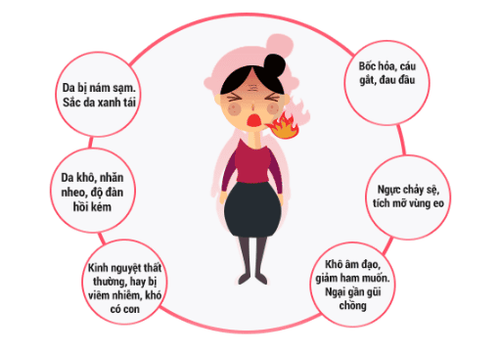
3. Treatments
Not all women need low estrogen treatment. But if low estrogen symptoms are bothersome, treatment may be recommended. Treatment is individualized based on the cause of low estrogen and current symptoms.
Hormone replacement therapy (HRT)
HRT is used to increase the body's natural hormone levels. Your doctor may recommend HRT if you are approaching menopause. Menopause causes a woman's estrogen and progesterone levels to drop significantly. HRT can help bring these levels back to normal.
Women can take HRT by mouth, subcutaneous patch, or vaginal tablet. In some cases, it may be through injections. The dosage given varies by individual. Usually, doctors prescribe the lowest dose that relieves symptoms. Side effects of this therapy can include bloating, headaches, and vaginal bleeding. But not all women can use this therapy. For example, HRT may not be suitable for women with a history of stroke, heart attack, or high blood pressure.
Estrogen therapy
Women between the ages of 25 and 50 who are estrogen deficient are often prescribed high doses of estrogen by their doctors. This can reduce the risk of osteoporosis, cardiovascular disease and other hormonal imbalances.
Actual dose will depend on severity and method of application. Estrogen can be administered orally, topically, vaginally, or through injections.
In some cases, long-term treatment may be necessary even after estrogen has returned to normal. This may require lower estrogen over time to maintain current levels.
This therapy can also reduce the severity of menopausal symptoms and reduce the risk of fractures. Long-term estrogen therapy is primarily recommended for women who are nearing menopause and have had a hysterectomy. In all other cases, this therapy is only recommended for one to two years. Because this therapy may increase the risk of cancer.
Lifestyle changes and reasonable diet such as:
Maintain a good weight. Do not exercise excessively. Soybean sprout extract helps to improve symptoms caused by estrogen deficiency.
Please dial HOTLINE for more information or register for an appointment HERE. Download MyVinmec app to make appointments faster and to manage your bookings easily.
Article referenced source: Healthline.com; Medicalnewstoday.com




